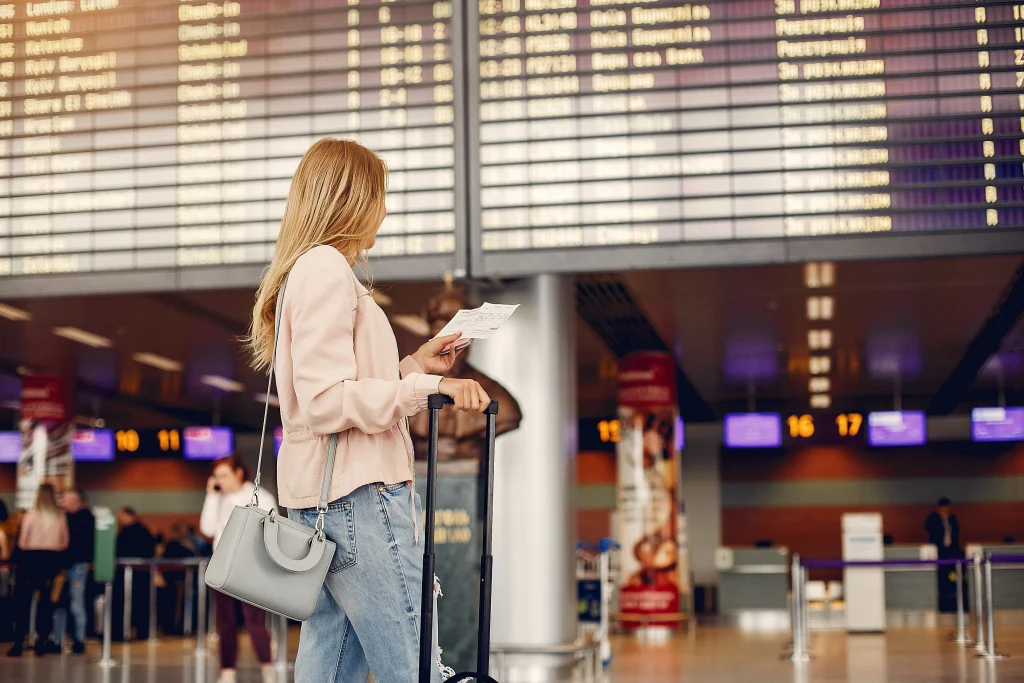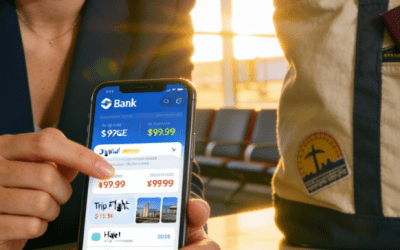The “personalization” concept is not a new one. In Airline Marketing, professionals are aware of the benefits of increasing customer loyalty via personalizing the customer’s journey from awareness to repeat customers.
You probably have a frequent flyer program, but how can you encourage more customers to sign up for it? How can you improve your customer segmentation with the right messaging through the right channels at the right time?
It can feel overwhelming. If you’ve asked yourself how to personalize your customer’s experience for greater loyalty and an improved bottom line, ask yourself a different question. What if you focused on making the experience more relevant?
Relevance is the New Personalization
You know the airline industry is competitive. As part of your Travel Marketing strategy, Airlines must keep their customers engaged when they send a relevant message at each step of the customer journey.
When clients feel a brand knows who they are and their preferences, they’re more likely to want to do business with them again and again. That’s the value of relevance. Relevance is personal.
One example is Hopper. Hopper is a designated OTA meaning it lets the user conduct their airline search and booking all within the app rather than sending the customers to a 3rd party tool. They’ve taken to asking their users questions to make the experience of searching for flights and hotels easier and more relevant. Based on those questions, they make relevant suggestions and have even tripled bookings. Once you have a pre-existing relationship with your customer, they trust you.
We’ll come back to this in a moment, but first, consider the steps a typical airline customer goes through:
- Planning the trip
- Booking the ticket
- Preparing to fly
- Flying
- Arriving at destination
- Returning
- Also, some situations may arise, such as
- Cancellations
- Lost baggage
- Complaints
That’s a minimum of six steps, and each step reflects a different phase of the customer’s thought process. As they plan their trip, they may consider various destinations, airfares, and dates. For a seamless airline marketing strategy, you must provide a relevant experience to help the potential traveler become a customer.
These relationship-building opportunities go far beyond booking and traveling, and Hopper has done it well. In airline marketing, building a better customer experience can pay dividends in customer loyalty.

Ways to Use Data to Improve Relevance
Of course, data is at the heart of any modern airline marketing method. Airline marketers can use data to craft more relevant messages for your customers which feel personal.
For years, airlines have relied on Frequent Flyer Programs to collect data and reward customers. While those are great ways to collect data, you might be able to get a better-rounded view of your customers through other means too.
Research shows that travelers of all types prefer relevant recommendations rather than a blanket offer. In fact, 87 percent of people will choose brands that personalize their communications.
Yet, what’s the right data, and how can you use it to endear your customers to you and not push them away? First, here’s a sampling of the data types that can be useful for creating a 360-degree customer profile.
- How far in advance do they book? Are they last-minute or advance planners?
- How many people do they book for: families, couples, solo traveler?
- Type of trip: business or leisure. Leisure travelers are typically the largest group of travelers and price sensitive. Bleisure travelers have also become a trend in the past years.
- Do they tend to book for the same or different places? How many times every year? For example, if a traveler always looks for the same city, then it’s likely that he or she would be more interested in events than sightseeing.
- Are their dates flexible?
- Another personalization strategy in airline marketing is if the user is logged in to your website and they have previously searched a flight including origin, destination, and dates, you can use this information for retargeting campaigns and sending personalized offers. The same happens with other widgets like travel restrictions maps or trip planners, which can give you valuable information on the user plans before booking.

Enriching your airline marketing: from Destination-Themed Content to Updated Travel Restrictions.
The more you know about your customers, the more relevant your messages can be. Take the person who often travels on their own. They might be most interested in events at a destination. If you know you have a family with small children traveling with you, then you can share ideas on kid-friendly activities.
Ryanair shares destination-themed content through its blog to inspire travelers. You can do the same with a targeted widget for your site. Iberia for instance sends personalized pre-departure emails to their customers with a link to a ‘trip planner’ to discover plans for the destination they are visiting during their travel dates. Now they are also offering content of their main summer season destinations to let users know everything there is to experience.

You can also build a community around your airline brand. KLM Royal Dutch Airlines pioneered using social media for customer support, sending customers’ flight information, and even creating inflight networking opportunities by making social media profiles visible to passengers.
If you know your customer typically books last-minute weekend getaways within three hours of their home airport, then you can offer them weekly deals.
With COVID travel restrictions in place to varying degrees around the world, you can use your customer’s booking information (origin, destination, language, etc.) to send them updates on the requirements for the destination and automate the process of document validation before boarding. For instance, Vueling sends pre-departure emails thanks to Smartvel’s travel restrictions data with a personalized link to their travel restrictions map that is already filtered by the restrictions for each customer’s origin and destination. Iberia uses the same provider to help passengers check documentation before flying and reduce the stress at the boarding gates.
There are many ways to adapt your customer communications and make them feel more personal. When you send relevant communications via SMS or other preferred channels, you are more likely to create strong customer loyalty. It all starts with relevance.
As you can see there are many ways to use data and technology to personalize your passenger’s experience and enrich your airline marketing strategy. If you want to provide relevant content for each customer at every step of the journey, trust an external provider who is specialized, like Smartvel.





